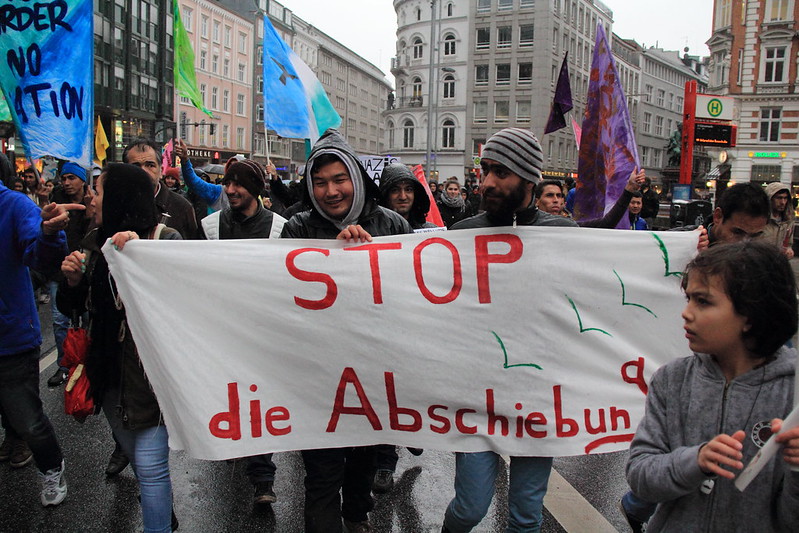In view of the growing difficulties in Russia, it is becoming increasingly important to find effective alternatives, considering that money from working abroad constitutes a very important slice of the GDP of Central Asian countries, ranging from 10% in Uzbekistan to 40% in Tajikistan. An issue that is intertwined with the question of Afghans in Germany.

Astana (AsiaNews) - Russia's political situation continues to complicate the lives of Central Asian labour migrants, and under these conditions the possibility for Western countries to influence the region's economy, including through agreements on legal migration, increases. On the other hand, pressure from sovereignist forces, which are against this enlargement, is growing in Great Britain and somewhat throughout the European Union. During his recent visit to Astana, German Chancellor Olaf Scholz concluded agreements in this field, but without divulging the details.
After negotiations with the President of Uzbekistan, Šavkat Mirziyoyev, Scholz confined himself to stating that the agreement ‘will allow for the indispensable immigration of qualified personnel, which we in Germany are in great need of’. On his way to Samarkand, the chancellor also agreed on ‘simple and necessary procedures’ so that ‘those who have to go back really do go back’, an addition evidently for the internal use of German public opinion.
Germany is just one of the many countries where immigration arouses reactions and tensions throughout society, which after all is one of the most effective tools for developing relations with Central Asia, whose strategic importance on a geopolitical level grows in proportion to the protracted Russian war in Ukraine. Kazakhstan-born Belarusian expert and publicist Jan Matusevič observes that ‘the German government is faced with an issue that is not easy to solve’, trying to harness anti-migrant tendencies in the face of recent electoral victories by the extreme right, while at the same time solving the problems of labour shortages, one of the biggest brakes on the country's economic growth.
Given the growing difficulties in Russia, it is becoming increasingly important for migrants to find effective alternatives, considering that money from working abroad constitutes a very important slice of the Central Asian countries' GDP, ranging from 10% in Uzbekistan to 40% in Tajikistan. In the UK, however, there have been quite violent demonstrations against migration in the past month, protesting against plans to attract thousands of workers from Central Asia. The demands in the various British regions are very high, and the brokerage agencies take advantage of this with numerous scams and breaches of the law.
Salaries in Western countries are two to three times higher for migrants than what they can earn in Russia, but the flow is still rather small, even compared to countries with a more traditional relationship with this region, such as South Korea. Currently, according to Die Zeit, 13,700 Uzbeks live in Germany, of whom only 200 are in an irregular situation, a minimal figure compared to the total of 225,000 migrants to be repatriated. The agreement between Scholz and Mirziyoyev should make the whole situation much easier to manage, similar to similar agreements between Berlin and other countries such as Morocco, Kenya and Georgia.
German researcher Beate Eschment, from the Berlin centre for international studies ZOiS, notes that ‘debates on migration today are very confused and irrational’, and do not allow governments to take effective positions, considering that ‘we absolutely need workers, and these can only come from abroad’. Certain factors could make the issue even more dramatic, not only because of the ‘migrantophobia’ of the Russians and conservative forces in Europe and America, but also because of particular contingencies such as the huge number of Afghans that Germany wants at all costs to send back to Kabul.
Since Germany and other European countries do not wish to have official relations with the Taliban, Uzbekistan could offer a very feasible way out, as Tashkent has no problem making deals with the Afghans, and a win-win exchange could be realised. Central Asia expects a more convinced support from the West, overcoming fears and hesitations in this complex geopolitical phase.
Photo: Flickr / Rasande Tyskar

No comments:
Post a Comment